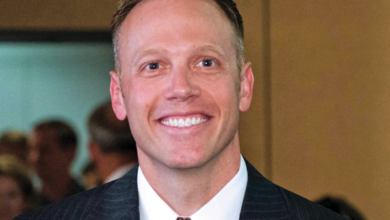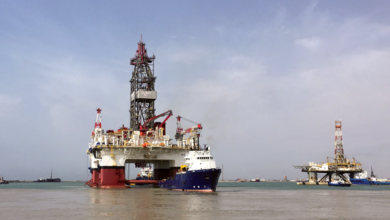New digital age may disrupt traditional business models
By Linda Hsieh, Managing Editor
The length and severity of this downturn have triggered a lot of discussion around the industry’s business model. Much of the discussion has centered around revising the traditional dayrate model to incentivize performance, but do such bonus schemes go far enough?
The drilling industry is at the cusp of an inflection point in its digital revolution. From automation to robotics, from data analytics to artificial intelligence (AI) – every day new technologies are pushing the industry ever closer toward changes that could significantly disrupt the business model as we know it.
Numerous other industries have already undergone such disruptions, typically with new-to-industry “disruptor” companies coming out on top. “Uber is the world’s largest taxi company, but it owns no taxis, and Netflix is the world’s largest movie house, but it owns no cinemas,” Archana Deskus, Chief Information Officer at Baker Hughes, said during the Digital Disruptions panel at this year’s OTC.
Could it be that, 20 or 30 years from now, the largest drilling contractors in the world won’t own or operate drilling rigs? While that sounds admittedly far-fetched, the point is that the potential impact of digitalization should not be underestimated. Disruptive companies are not going to be thinking about bringing incremental value into a business. “They are thinking about what doesn’t exist and what’s the new value that they can create in the market,” Ms Deskus said.
Companies that dismiss the trends they see, on the other hand, are likely to be left behind and wiped out by the competition. “It isn’t about not having the capabilities in the organization, but it’s more about did they see what the technology was going to do and what the trend was going to cause within their industries? Could they react fast enough to stay relevant?”
Change is fast, unpredictable
Change, when it happens, will happen fast, Adeeb Gharzouzi, Principal, Digital Practice at Accenture, said at the same OTC session. “If you look at a telephone, it took approximately 75 years to reach 50 million users. If you look at television, it took 13 years. Mobile phone – 12 years. The internet – four years. Facebook – three and a half years.” More recently, apps like Angry Birds and Pokémon Go were able to achieve 50 million users in “a matter of days,” Mr Gharzouzi said.
A common pushback in the oil and gas industry is that these disruptive companies tend to be B2C (business-to-consumer) companies. “But that doesn’t mean there’s nothing that we can learn and apply to a B2B (business-to-business),” he said.
For one, don’t wait until you have a solution 100% proven before deploying it. Mr Gharzouzi cited Tesla and its self-driving cars as an example. “They went ahead from the get-go and installed this software on every single car they manufactured,” he said. The company then used the data collected to refine their AI software. “As soon as they were confident enough that their software was ready, they were able to deploy immediately across all the cars.”
He also advised thinking of the wellbore itself as the customer, noting that in many industries, digital technologies are allowing companies to predict customer behaviors and needs. Many companies in the oil and gas sector are already running analytics on data collected from the wellbore, but “then there needs to be on top of this layer artificial intelligence that triages the information coming through.” There would be some “unrisked” decisions that could be made by the computer, and the more risky decisions would be passed up the chain for human intervention.
“With the massive amounts of data that you collect, how much of the data is actually being used to drive the key decisions that we make on a daily basis?” Mr Gharzouzi asked. “This is where we start to lag.”
Culture also will be a critical factor to success – one that is open to new ideas from both outside the industry and within. “Every single one of those companies that disrupted an industry came in with a completely different mindset than the companies within that industry. That’s what allowed them to disrupt them.” DC



